Part 10: Reformation Tension, 30 Years of Wars
Part 10: Reformation Tension, 30 Years of WarsLet's consider Spain's position at the beginning of 1500. We have a huge standing army, but France's concentrated forces are still a threat to us. The Protestant Reformation could help or hinder us, depending on how it spreads. We still have many opportunities for expansion in Africa, the Middle-East, or the Americas, but I'm tempted to give some attention to Eastern Asia once our ports in Arabia begin to gain cores.
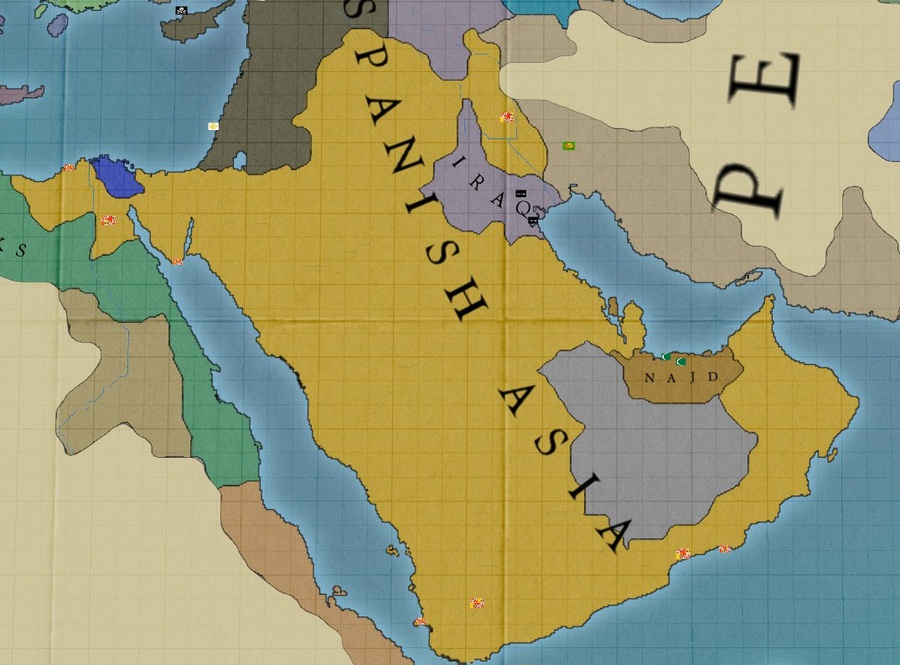
For now, Arabia still presents itself as a good target. War is declared separately on several powers with the Holy War CB and 3 nations are annexed for a healthy amount of infamy. The spices and coffee that the region produces will be good additions to Alexandria's markets, and ports here could make for perfect stepping stones into India, China, or Southeast Asia.
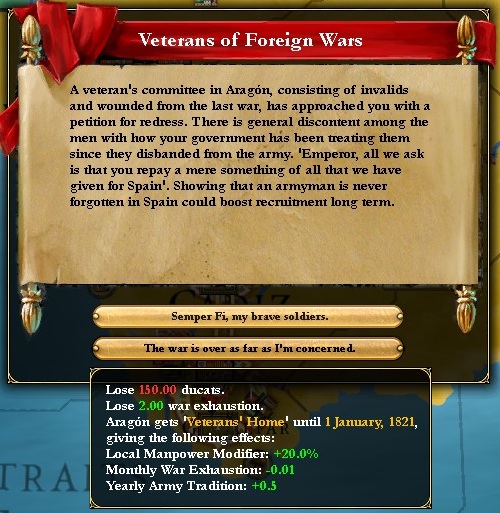
Marching large armies through low support limit deserts saddled us with a large amount of war exhaustion once more, causing this event to trigger. This is actually a great event, and I recommend paying to get the Veteran's Home bonus even if you have to go into debt to do so. The extra yearly army tradition and monthly war exhaustion reduction are powerful modifiers.
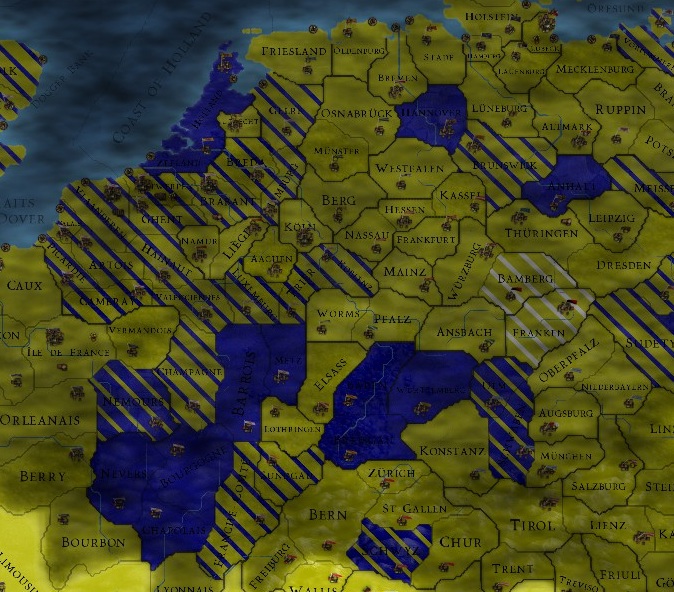
Burgundy adopts the Protestant faith and ends its alliances with all Catholic nations, including Spain. This causes our relations with them to plummet from a A positive 195 to a -5. Frustrated by this, I begin cancelling our other diplomatic ties with them, such as military access.
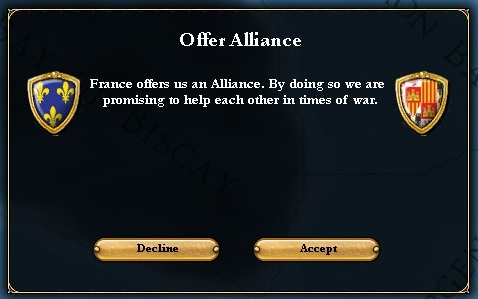
This was all Catholic France needed to see to begin asking me for alliances once again. I've turned them down before, but somehow despite my strong relationship with Burgundy their relations with me always hovered around 100. Perhaps we should bury the hatchet and reconsider the nature of our relationship with the French?
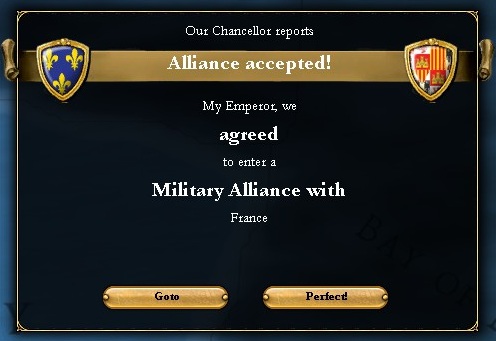
Their alliance offer is accepted, and I solidify it with shared military access and a royal marriage.
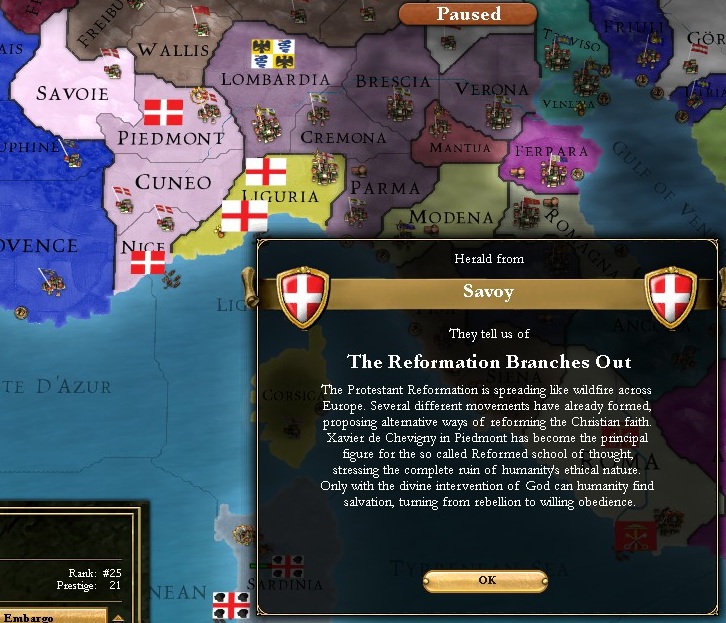
The Protestant faith originated in Denmark several years ago, and now the Reformed faith appears in a central province of Savoy. The ruler of Savoy hasn't adopted the faith as their national religion though, so for now it only exists in the province of Piedmont alone.
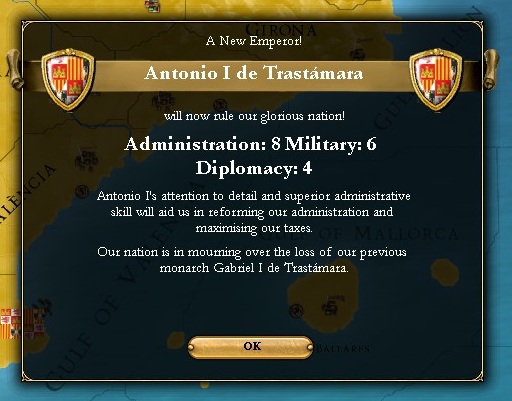
Emperor Gabriel passes away, leaving the much more talented Antonio I on the throne of the Spanish Empire.
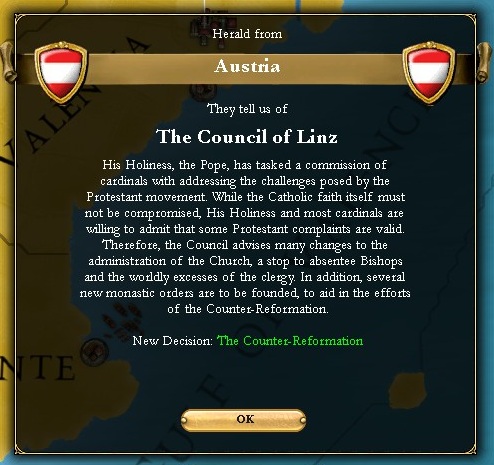
The Pope issues some edicts to combat the spread of the Protestant Reformation. This opens up the option for us to enact a useful new decision.
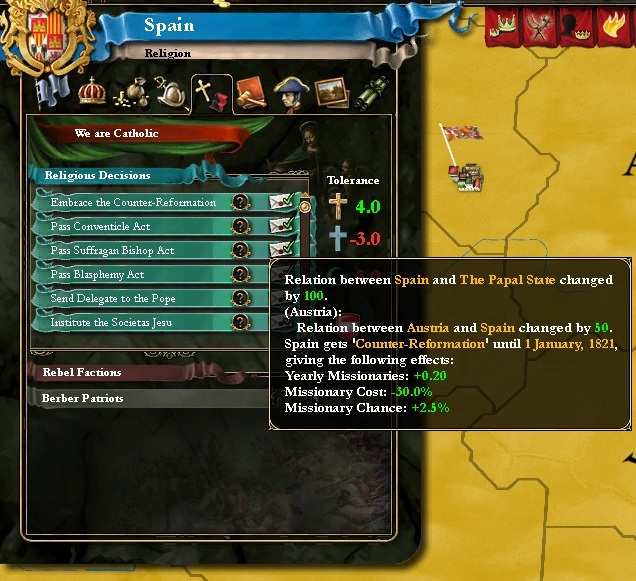
The Counter-Reformation religious decision gives us more yearly missionaries, increases their success chance, and cuts their costs by nearly a third. It also reduces (or maybe eliminates) the chance for further reformation events to trigger in our country. We enact this decision right away.
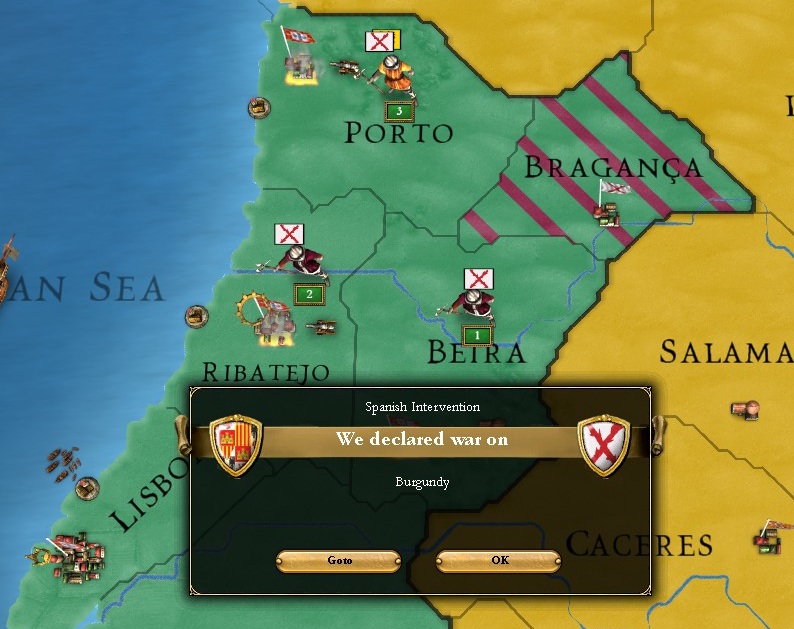
Burgundy declares war on Portugal and lands troops in Iberia. This is the last straw, and I declare war on them with our Alliance CB to aid our ally Portugal. You gain an Alliance CB on any nation who attacks and ally of yours.
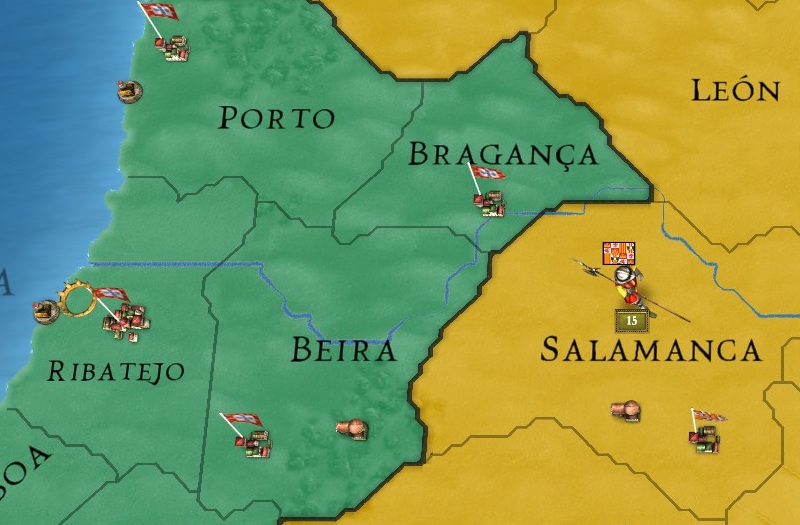
Our central army marches out from Madrid and clears Portugal's countryside of enemy armies while France begins an assault on Burgundy's core provinces.
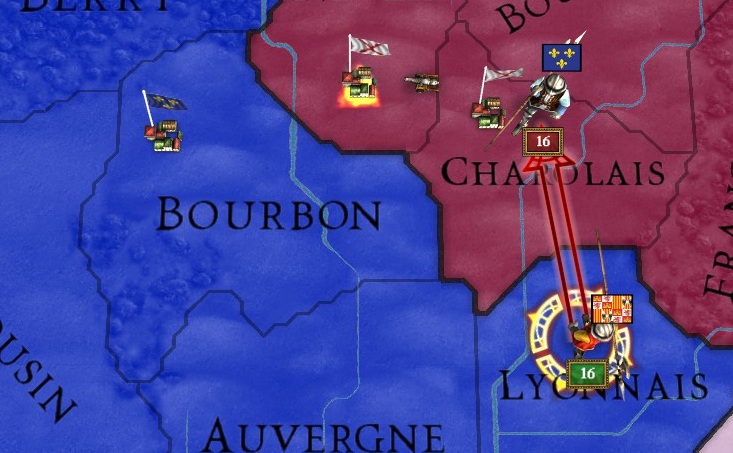
Our armies that were once stationed along the French border to protect ourselves from them are now marching through France with all the comforts of military access. Some French armies are on the retreat, but 2 fresh Spanish armies reinforcing them are all that is needed to start a cascade of successful sieges all across Burgundy.
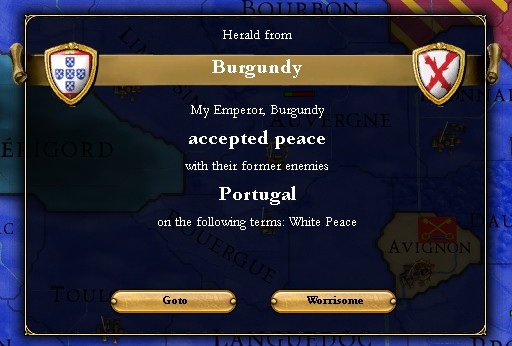
Burgundy makes peace with Portugal as several of their core provinces begin to fall to Spanish and French forces.
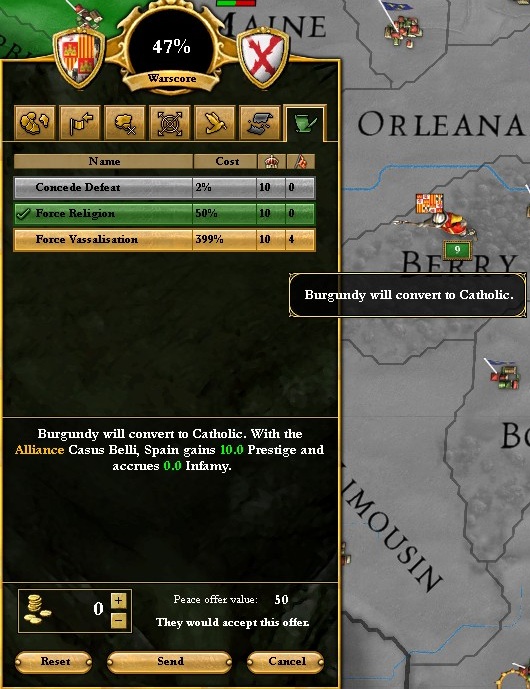
Finally, with nearly half of their nation under occupation I force the ruler of Burgundy to convert back to Catholicism. If I want a good chance of restoring relations with Burgundy at some point in the future, it will help to have that common ground between us again. France manages to seize 2 of Burgundy's provinces before all is said and done.
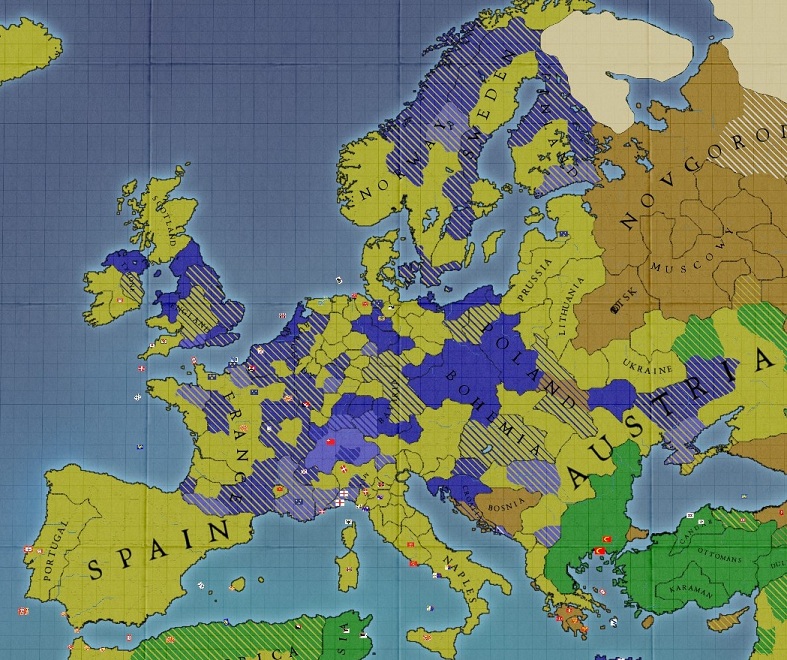
This is how the religious mapmode looks now. Central Europe's religious uniformity is shattered. We removed the largest protestant state from the picture by forcing Burgundy's conversion, though several of their provinces remain protestant for the time being. Spain and Portugal manage to escape the turmoil, along with many of the Italian nations around the Papal States.
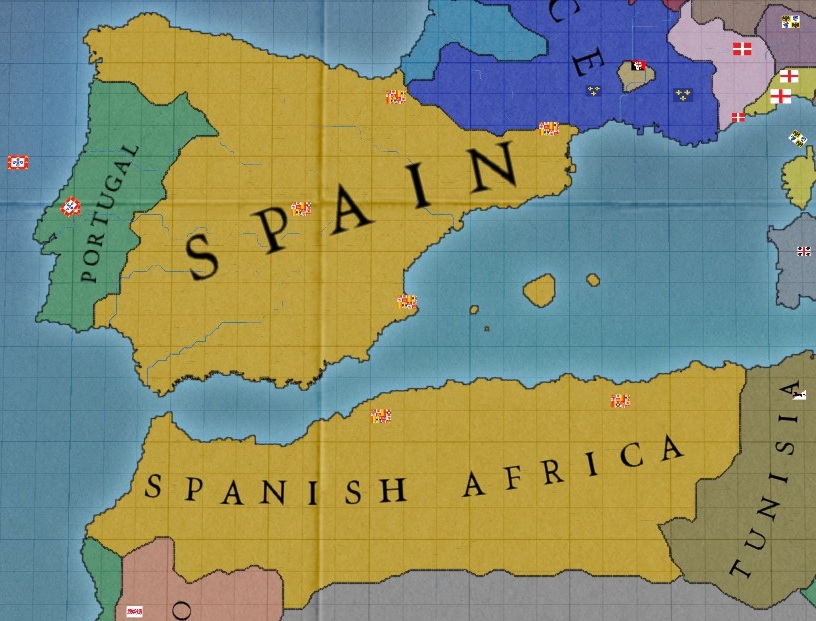
With the war against Burgundy over, our attention is turned back to Northern Africa. Algiers is completely annexed, and Morocco's presence is reduced to the western coast of Africa.
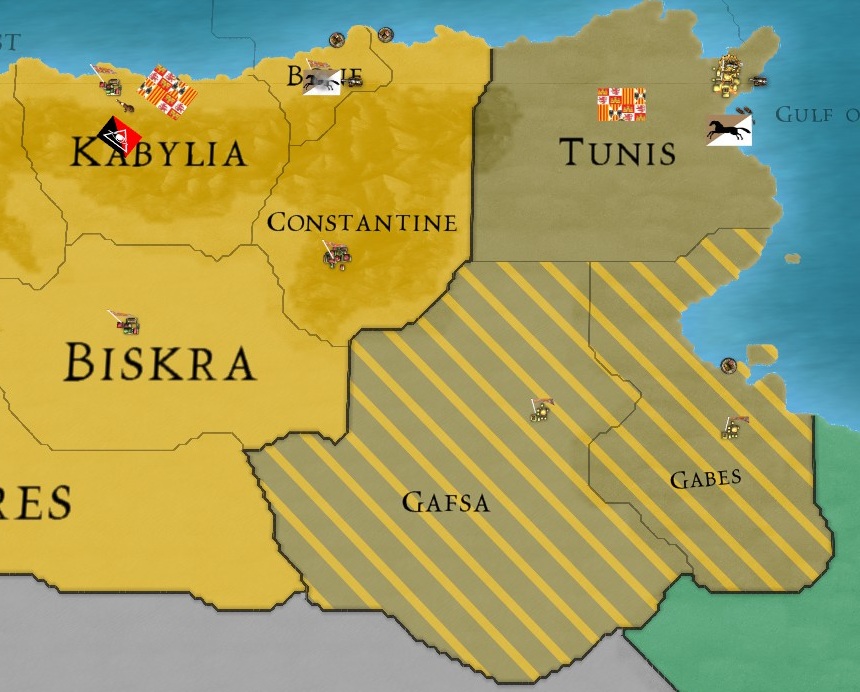
Tunisia follows shortly thereafter. Tunisia seems to have several allies in the east, as the Ottomans and many smaller states join the war to aid them.
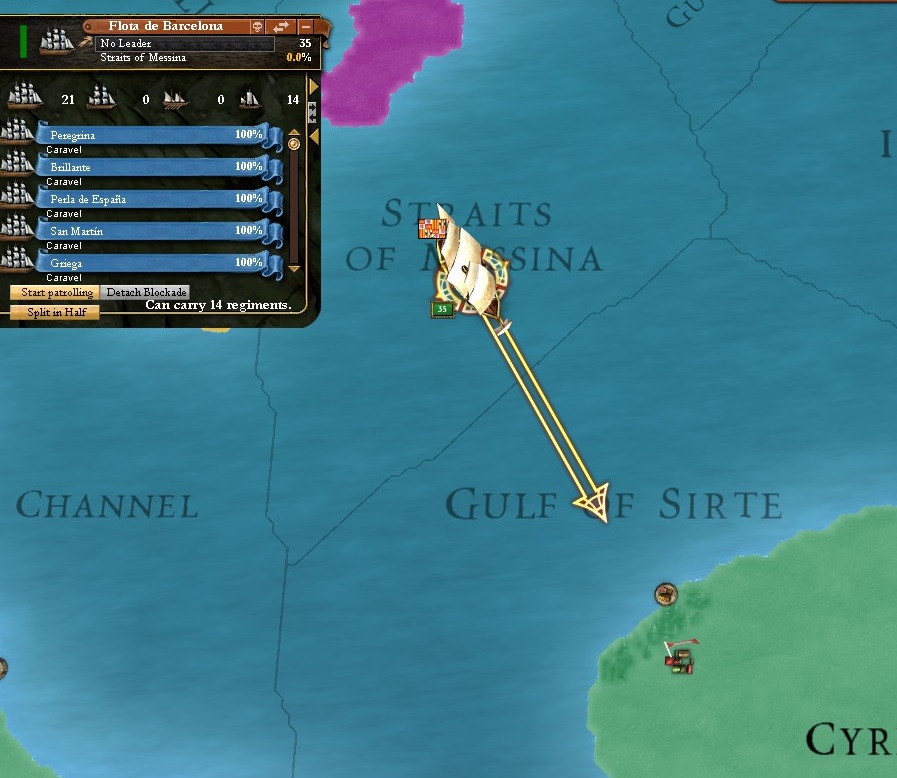
Rather than directly fight them, I move our fleet to the tip of Southern Italy and set it on a patrol path back and forth between these 2 sea zones separating Italy from North Africa. The fleet travels back and forth so quickly here that it will catch any enemy navies trying to sneak past while I focus on the land war.
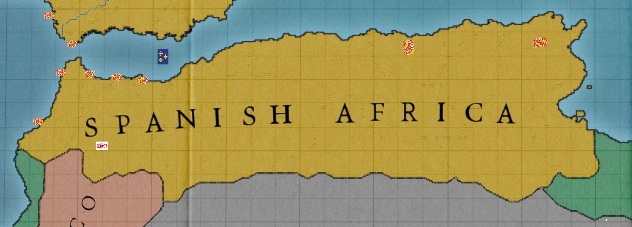
Tunisia falls, leaving a contiguous path of Spanish and Portuguese provinces stretching from the Atlantic Ocean to the border with Persia
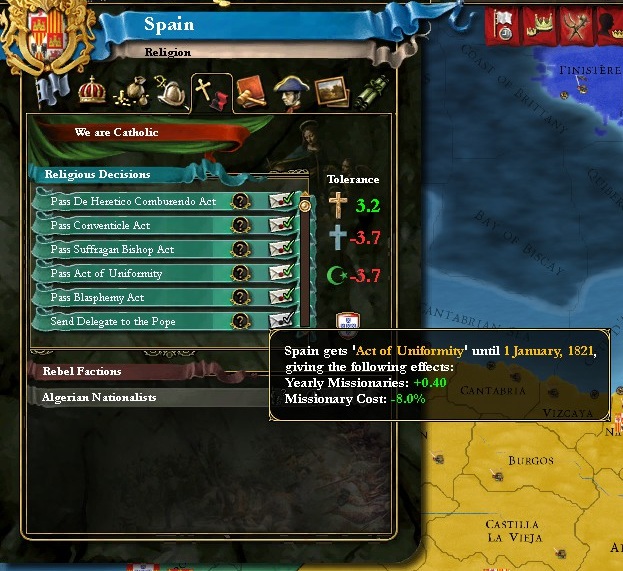
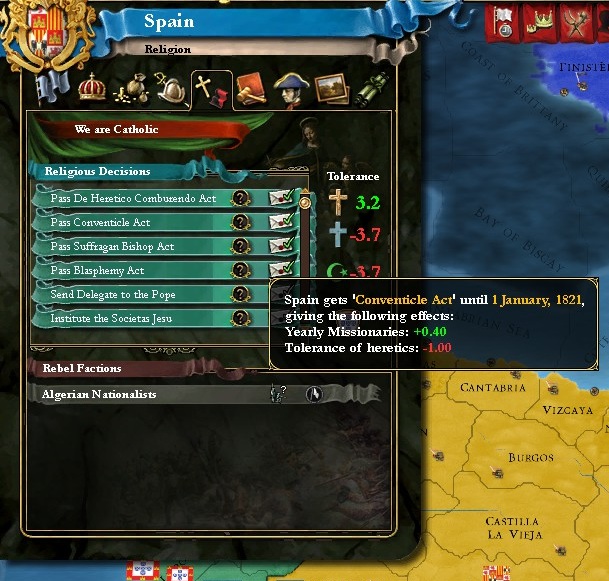
Two more useful religious ideas are enacted, increasing our number of missionaries and reducing their costs even further. The further penalty to tolerance of heretics here causes us to become even less accepting of different sects of Christianity than we are against non-Christians.
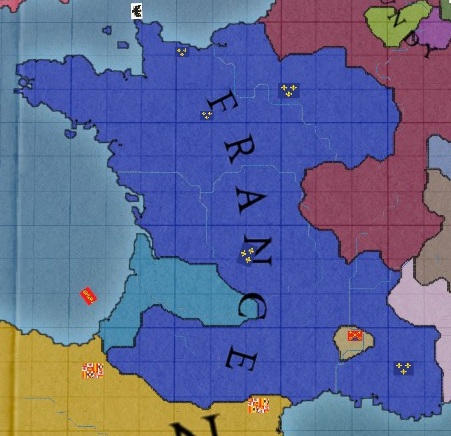
France is more powerful than ever after seizing some Burgundian provinces in the recent war and diplomatically annexing Brittany. It just so happens though, that the current king of France has no heir and they are in the middle of a disputed succession. I immediately claim the throne of France.
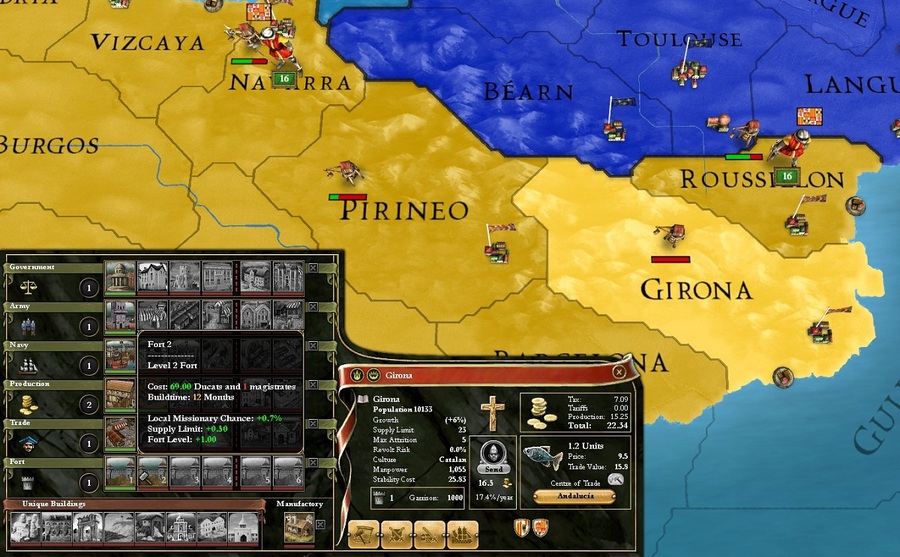
The construction of level 2 forts is ordered in our 4 border provinces. While the forts are being built, I prepare ourselves diplomatically by cancelling troop shared troop access with France. Claiming the throne of a relative through marriage makes the other nations you are in marriages with nervous, so gifts are sent to Portugal and a few of our vassals to reassure them that they aren't next.
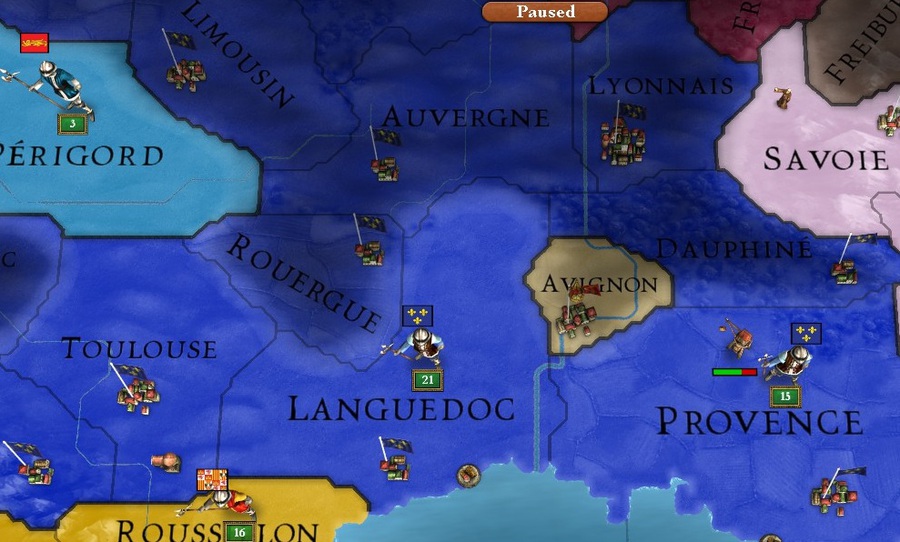
France clearly has 2 large armies in their southern provinces, but with the fog of war now covering the rest of their country we can't see what kind of forces they have hidden deeper inside. Thankfully, we've had a positive Plutocracy slider for a while now and have built up some spies.
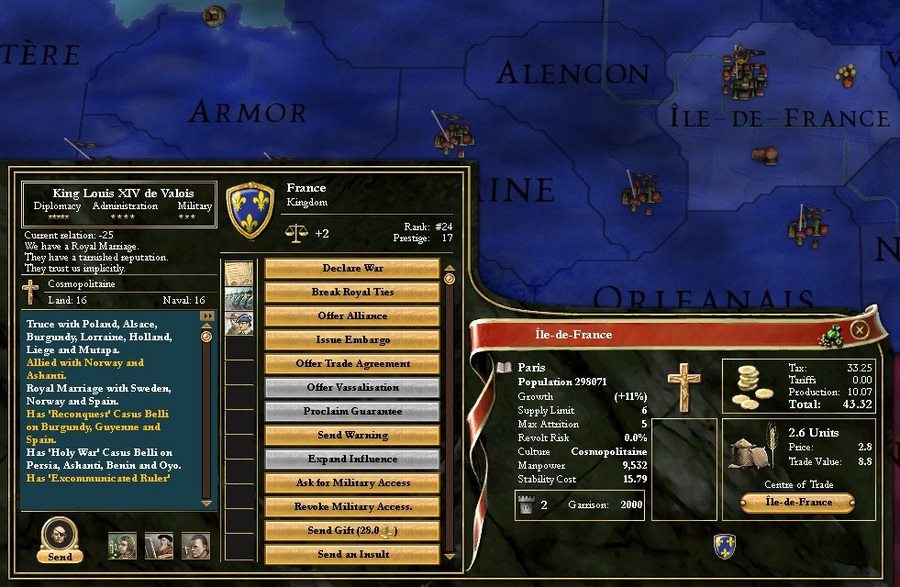
Spies are used by clicking on any enemy province and then clicking on the Send button in the very bottom left with the eye-patched spy icon. Spy actions will occur specifically on which ever province you have selected, although some spy actions cause national effects. A few particular spy actions must be carried out on the enemy capital. I select the province that contains France's capital of Paris.
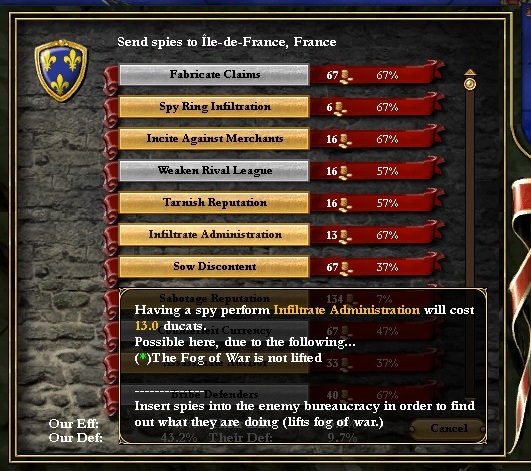
The Infiltrate Administration spy action must be carried out in an enemy's capital. This action will uncover the fog of war across their country for us so we can see their troop deployments.
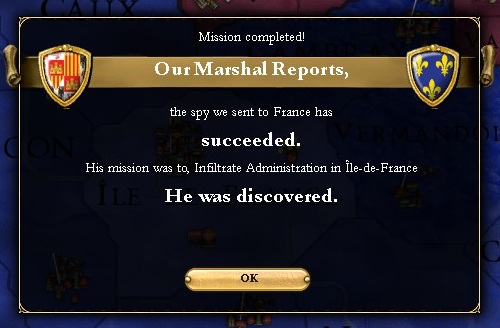
Our spy was successful, but he was also detected so France knows that we are up to something. Some spy actions cause a reduction of your prestige or infamy when your spy is detected. I believe that being detected carrying out this action simply reduces our relations with France.
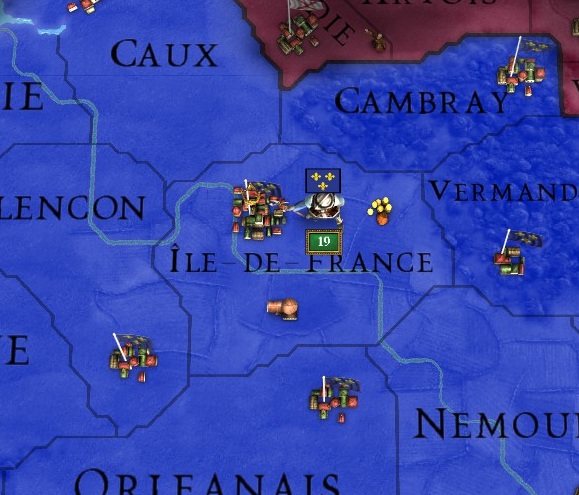
We're now able to see that France has a third large army stationed in its capital that can be moved into the war relatively quickly.
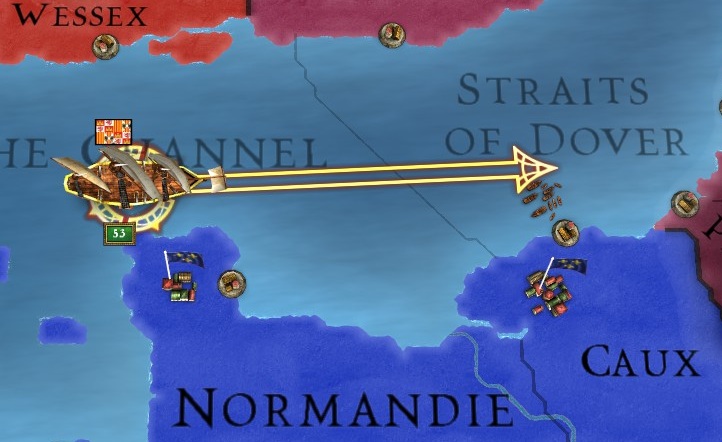
We can also see that their entire fleet is stationed in Caux. I move our much larger fleet into the Straits of Dover. This will bottle their fleet up for the entire war. The AI will not move a fleet out of a port into a battle that it knows it has no chance of winning.
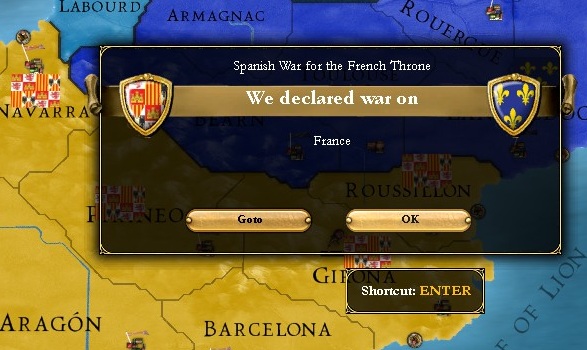
The war for the throne of France begins.
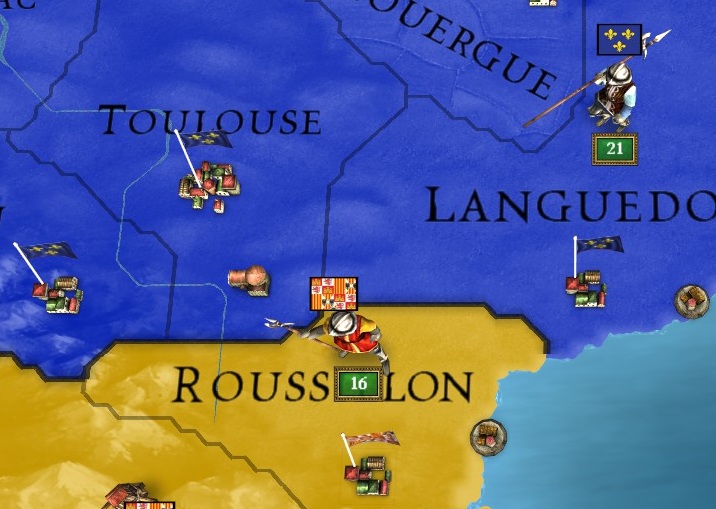
Large French armies begin marching into Spanish territory immediately. We don't meet them in battle right away, though.
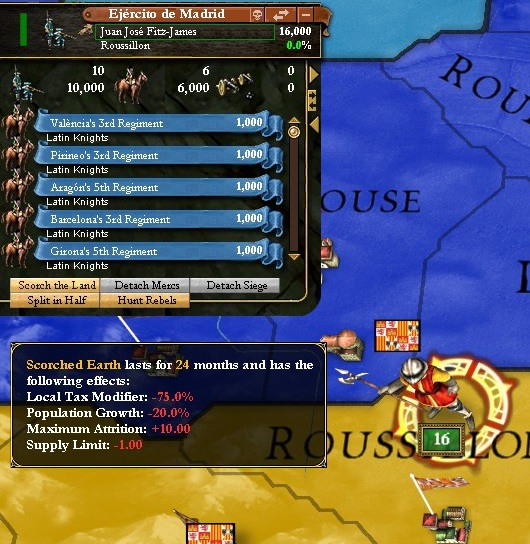
Instead, our troops Scorch the Land and then retreat to the next province inside of our territory. All 4 provinces along our border with France are scorched and the armies within them evacuated one province away. Not only does this reduce the supply limit of the province, it increases the maximum attrition that an enemy army can suffer there. Normally the maximum attrition an army can suffer is 5%. Scorching makes it 15%. Additionally, it happens to be October and if harsh winters happen to hit these mountainous provinces, maximum attrition could reach 17 or even 20% attrition per month.
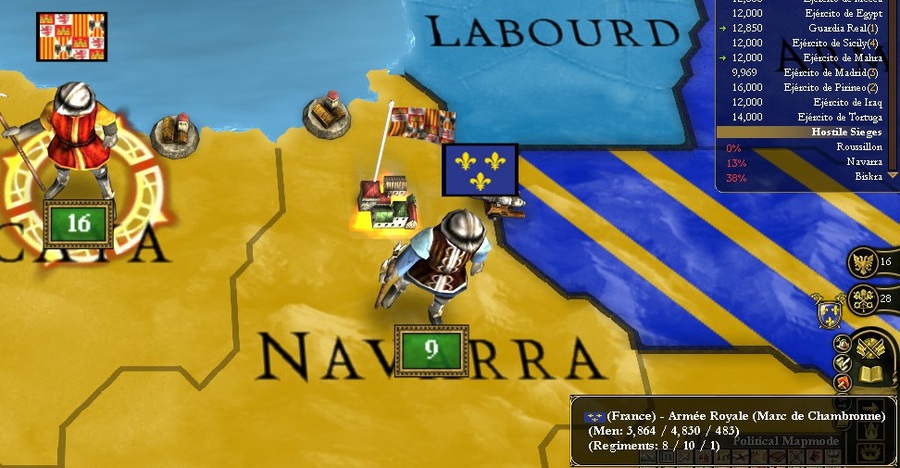
Notice the effects of the scorched earth here. This French army marched into Navarra originally with 19 full regiments - 19,000 troops. After a few months of sieging they are reduced to about 9000 men. This same scene plays out with the French armies in Roussilon as well, but a Portuguese doom stack charged in and attacked them before I could get a decent screenshot of the attrition they suffered.
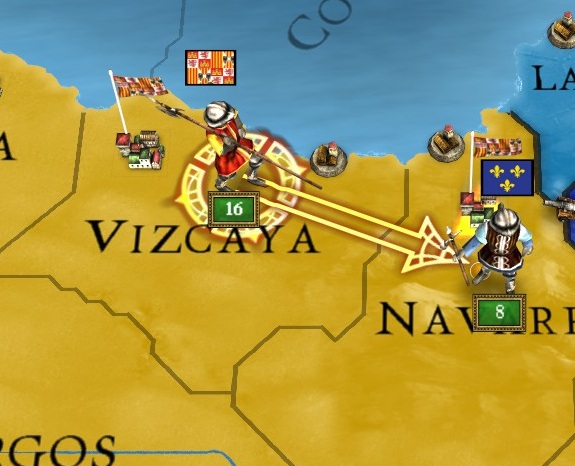
Another month passes and the 19 French regiments in Navarra are reduced to around 8000. The time seems right to rush in and overpower them.
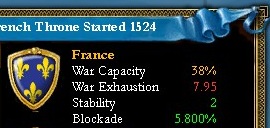
France's war exhaustion and war capacity are already significantly impacted a short time into the war, due to the massive attrition they suffered for a few months, followed by the destruction of those armies.
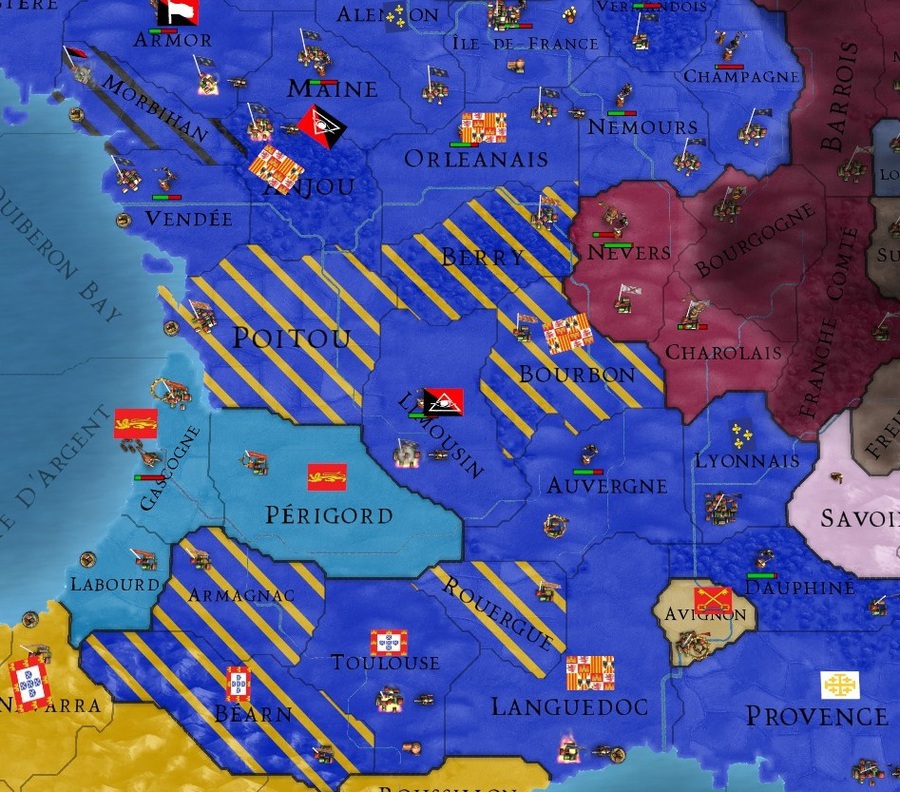
After the 3 large French armies are routed, Spanish and Portuguese troops run wild through the French countryside occupying several of their rich core provinces. The Kingdom of Jerusalem helps out by landing an army in southern France. Rebel stacks keep spawning as well, due to France's high war exhaustion and the religious intolerance in their several heretical provinces.
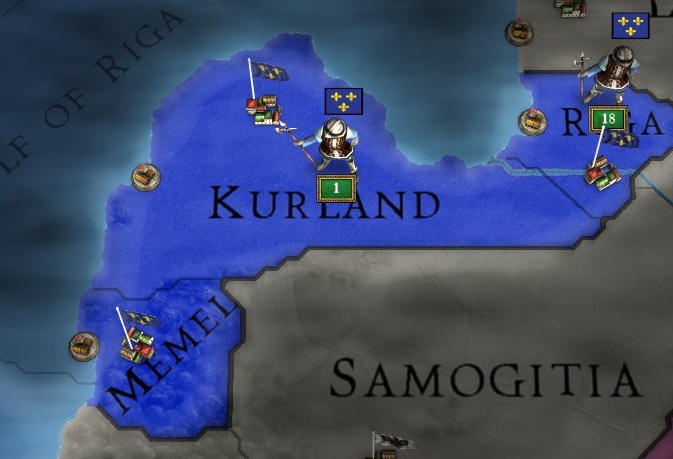
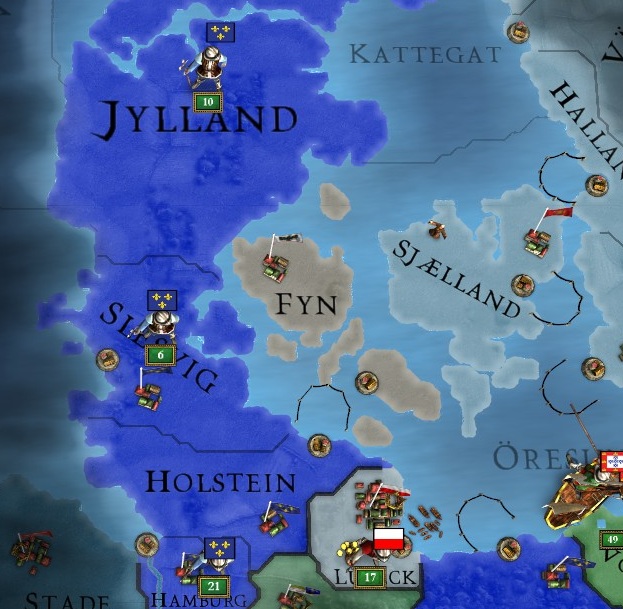
Meanwhile, large numbers of French troops are forced to remain stranded overseas while their fleet is pinned down in port.
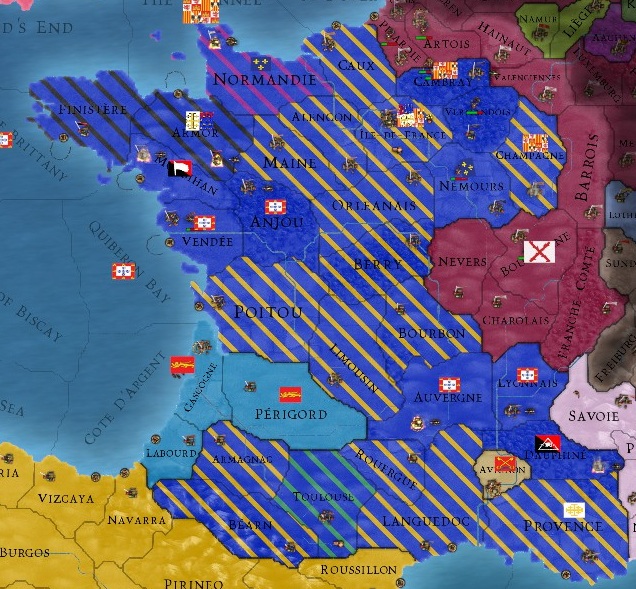
France isn't able to recover after the loss of its 3 large central armies a few months into the war. Allied armies occupy nearly the entire country before France is willing to give in to demands.
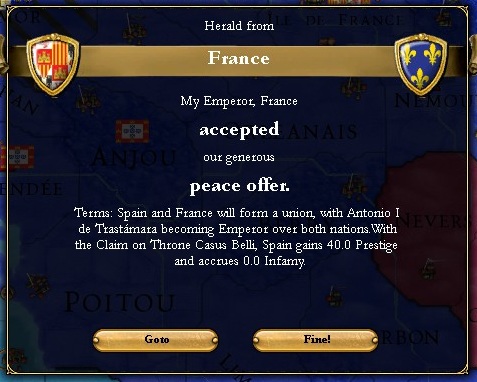
France is now in a union under Spain. Since the French provinces are in a different culture group than Spain, any eventual inheritance of France would not give us any cores or let us keep any buildings other than forts.
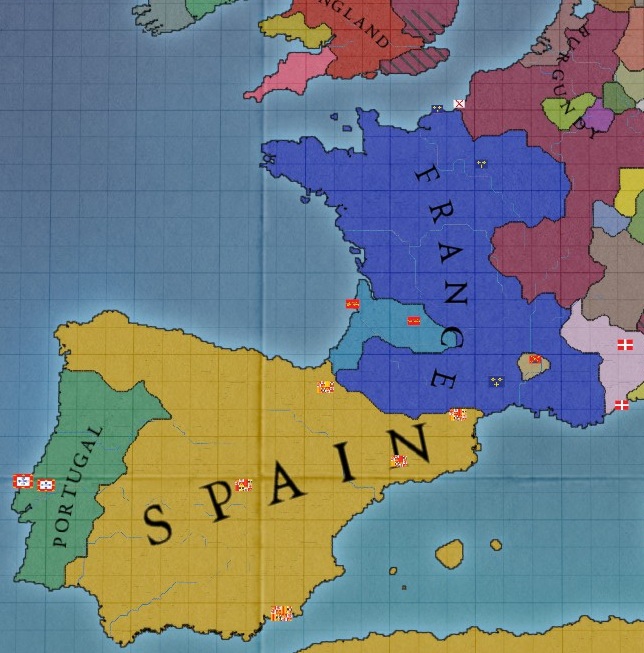
That's only a minor complaint though, all things considered. In just under 30 years France has gone from a major threat, to an ally, and finally a subject nation. Relations with Burgundy are on the mend once again too, now that they have returned to Catholicism. Now, what should we do with a mighty subject nation like France to do our bidding?